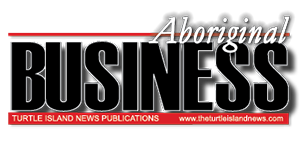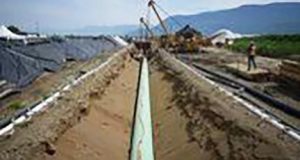By Stewart Burnett
Local Journalism Initiative Reporter
James Eetoolook, long-time vice-president of Nunavut Tunngavik Inc. ,is retiring and leaving some big shoes to fill on the wildlife and environment front for the territorial Inuit organization.
With an election coming up to replace him, Clayton Tartak from the Kivalliq Wildlife Board (KWB) hopes to be the right fit to carry on that legacy.
“We have a big need to fill on the wildlife and environment side with the resignation of James Eetoolook,” said Tartak, wildlife and environment coordinator with the KWB.
“Those are big shoes that need to be filled ? There’s no way that I could fill them personally, but what I hope to do is fill those shoes collaboratively with the regional wildlife organizations and hunters and trappers organizations.”
He’s worked with the KWB for three years, proceeding from technical advisor to research coordinator and now wildlife and environment coordinator, participating in several environmental assessments along the way. Those experiences helped him notice the need for more capacity on the wildlife and environment file.
“I’ve worked with the hunters and trappers organizations and the regional wildlife organizations over the last seven years and I understand their needs,” said Tartak.
Should he be elected, Tartak would like to put emphasis on developing more commercial fisheries in Nunavut.
“That’s going to be the next big avenue for economic development, but in order to do that right, we have to provide support to the organizations that will take advantage of that economy,” said Tartak, noting that Inuit should be steering their own fisheries.
He said Pangnirtung’s fishery is a good example that other Inuit should model their ventures on. Tartak specifically thinks Coral Harbour and Naujaat are ripe for development on that front.
“Focusing on the fisheries files will push the governments and regional development corporations to invest in infrastructure to support the fisheries in the near future and for the long term,” he said.
“Arctic char is highly desired outside Nunavut and inside Nunavut. There’s a big unexplored market that Inuit should tap into.”
He would also like to put emphasis on education.
“Education is a big topic that I think everybody should be working together to address so that we can have youth take advantage of employment opportunities moving forward, be it at the mine, in the fishery, within the government or any alternative economy that comes up in the future,” said Tartak.
He added that NTI exists to implement the Nunavut Land Claim, but sometimes there can be confusion over which aspect exactly, maintaining wildlife, maximizing benefits, or managing lands?
“It’s been a contentious issue definitely in the Kivalliq with some of the recent proceedings, but I would commit to working with the communities so that they realize that they have options for their lands,” said Tartak.
He would also like to push for increased capacity for hunters and trappers organizations to fulfil their mandates, and to support wildlife organizations in developing research.
Tartak is running for the position alongside three other candidates: Jack Anawak, Paul Irngaut and Jacopoosie Peter. The election will be held Dec. 12.
Stewart Burnett is a Local Journalism Initiative Reporter with the
KIVALLIQ NEWS. The LJI program is federally funded. Aboriginal Business Magazine does not receive LJI funding.
 Aboriginal Business Magazine Your source for Aboriginal Business News
Aboriginal Business Magazine Your source for Aboriginal Business News


